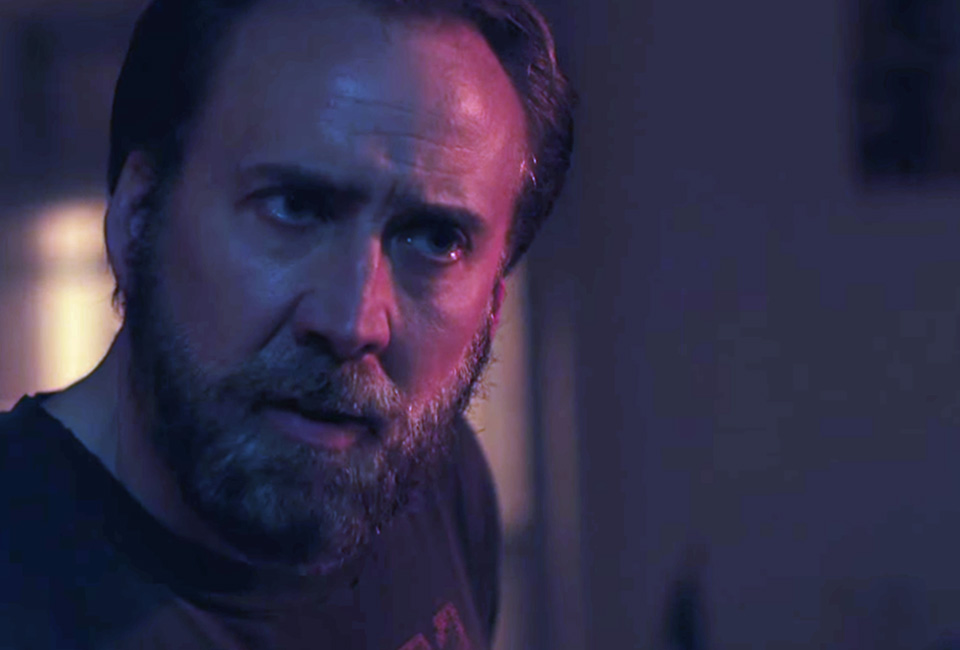Title: Joe
Director: David Gordon Green
Starring: Nicolas Cage, Tye Sheridan, Ronnie Gene Blevins, Gary Poulter
For many directors, the independent film realm, and its more constrictive parameters of budget storytelling, are a thing to leave behind — to graduate from, as part of a move up into the “big leagues.” David Gordon Green, though, even as he has crafted Hollywood studio comedies like “Pineapple Express,” “Your Highness” and “The Sitter,” has kept one foot planted in the indie arena, and more plaintive portraiture. “Joe,” his latest effort, is a tender, lyrical slice of underclass drama, anchored by a magnetic performance from Nicolas Cage, that also exercises a certain kind of metaphorical connection to the low-lying fog of economic desperation that presently holds so many in its grip.
An adaptation of the late Larry Brown’s 1991 novel of the same name, Green’s film centers on Gary (Tye Sheridan), a 15-year-0ld Texas kid whose father, Wade Jones (Gary Poulter), is a shiftless, alcoholic lout. Near-homeless and hungry, both figuratively and literally, Gary hooks a job with Joe Ransom (Nicolas Cage), who runs a crew of guys hired in back-channel fashion by a logging company to chemically kill off trees, in order that they may harvest the land. Joe is a strong-willed ex-convict who has issues with both authority proper and a scummy nemesis, Willy (Ronnie Gene Blevins), with whom he’s apparently been feuding for years. In short, Joe isn’t really a role model. And yet, to Gary he is. And so, by degrees, Joe begins to assume that mantle.
“Joe” is a weathered work, emotionally and visually, where almost everything is of a piece. Abetting the simple, spare production design, cinematographer Tim Orr delivers a palette that finds beauty and meaning in its many outdoor locations. There are a few moments of slip-up where issues of budget or attention to detail poke through (some phony rain in an early scene, in which characters then appear without their hair matted down). But Green rounds out his cast with non-actors — a gambit that works much more than it doesn’t. Poulter (who tragically passed away after filming) and others, selected for their grizzled faces as much as anything else, lend the movie a grungy authenticity, as do sequences of hearty rural life (Joe gutting a deer) and long-take domestic arguments. Cage and Sheridan (“The Tree of Life,” “Mud”), meanwhile, have a great rapport, and the veteran actor in particular delivers a dialed-in performance, his most layered of the last several years.
Not entirely unlike “Prince Avalanche,” Green’s previous film, “Joe” is, broadly speaking, a movie about men finding their way in the world. Here, there’s the specter of alcoholism, and all the rotten fruit it has born, and there’s the contrast of Gary’s burgeoning relationship with Joe, who starts off as a gruff mentor but becomes a proactive surrogate. What makes the film work, though, as much as its winding, leisurely plot strands, hot flashes of violence and the general quality of its lead performances, is the tension in this pairing. Joe isn’t the totemic opposite of Gary’s knockabout father; he drinks quite a bit as well, and has a temper, too. He’s a man struggling with his own rage and demons, trying to hold them at bay in that most time-honored of male traditions — by stuffing them deep down inside. In Gary, Joe sees a kid in need, and he has protective impulses awakened. But we’re not quite sure where that’s going to take either Joe or Gary, and the dangers and temptations the former also faces, while much more of his own creation, give the film a nice parallel resonance.
If there’s a strike against the movie, it’s that “Joe” remains a very patriarchal work. Yes, it’s overwhelmingly focused on these three men, but it doesn’t delve into Gary’s relationship with his mother (who’s barely glimpsed) or his sister, whose muteness is explained with a casualness that most will find befuddling and some will read as oblivious commentary on the movie’s gender politics and divide. Green could also stand to turn up the boil just a bit; more bubbling menace would root the film’s third act action, and deepen its catharses. Still, even if it’s a work of mood and color more than wily plot, the engaging “Joe” elicits considerable empathy, and leaves one glad and grateful that Green hasn’t abandoned his more esoteric and independent-minded roots.
NOTE: In addition to its theatrical expansion this weekend, “Joe” is also available across VOD platforms.
Technical: B+
Acting: B
Story: B
Overall: B
Written by: Brent Simon

